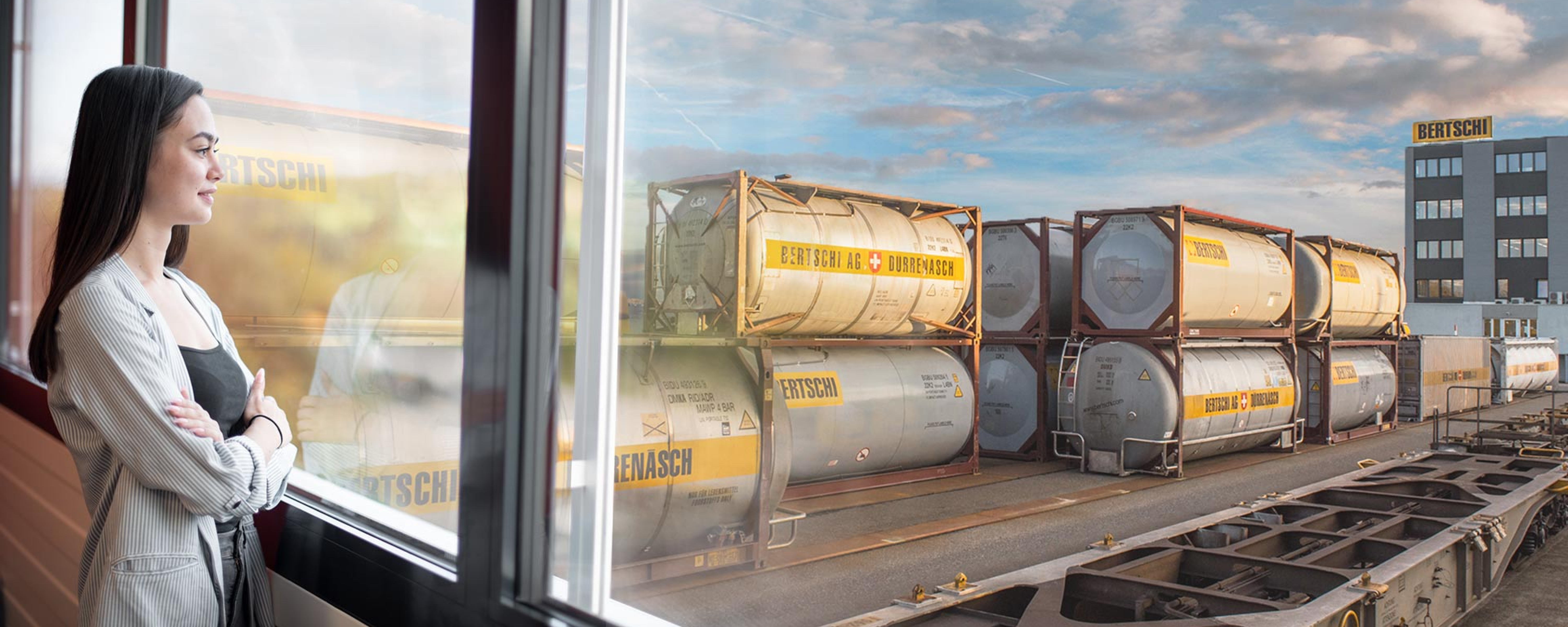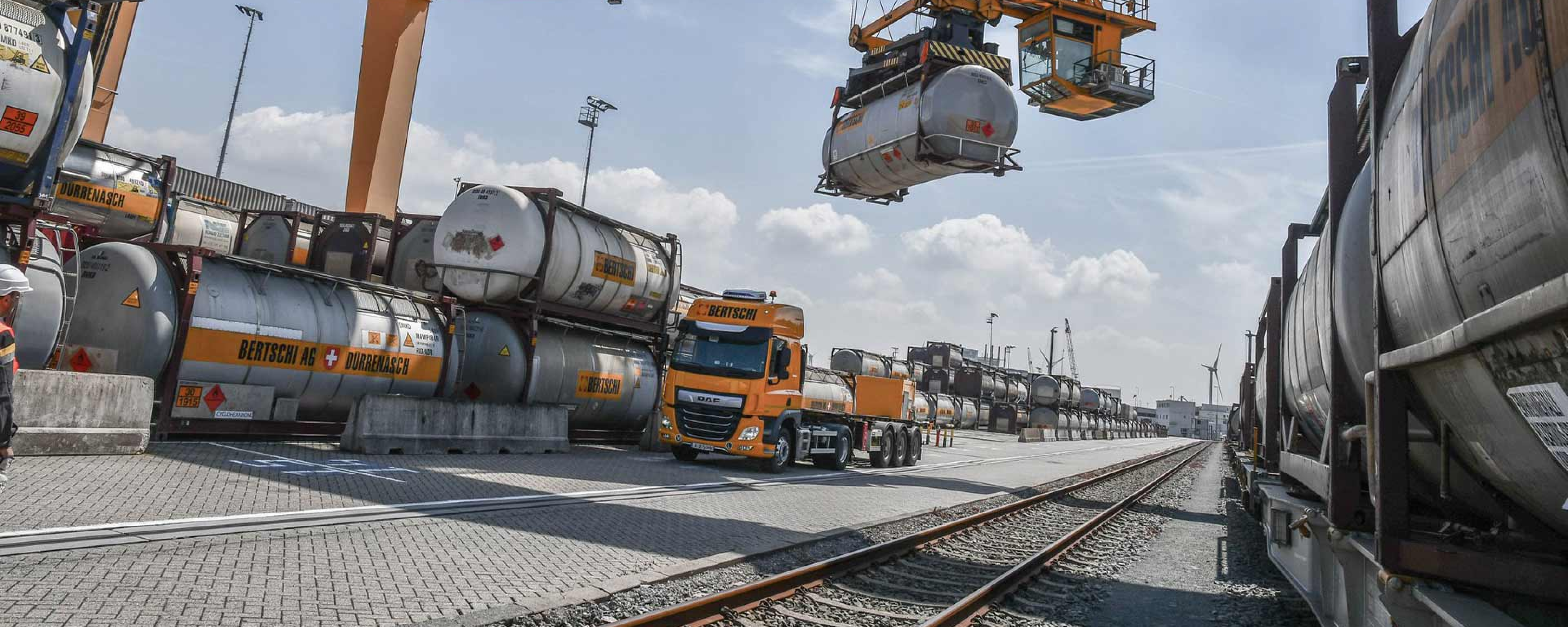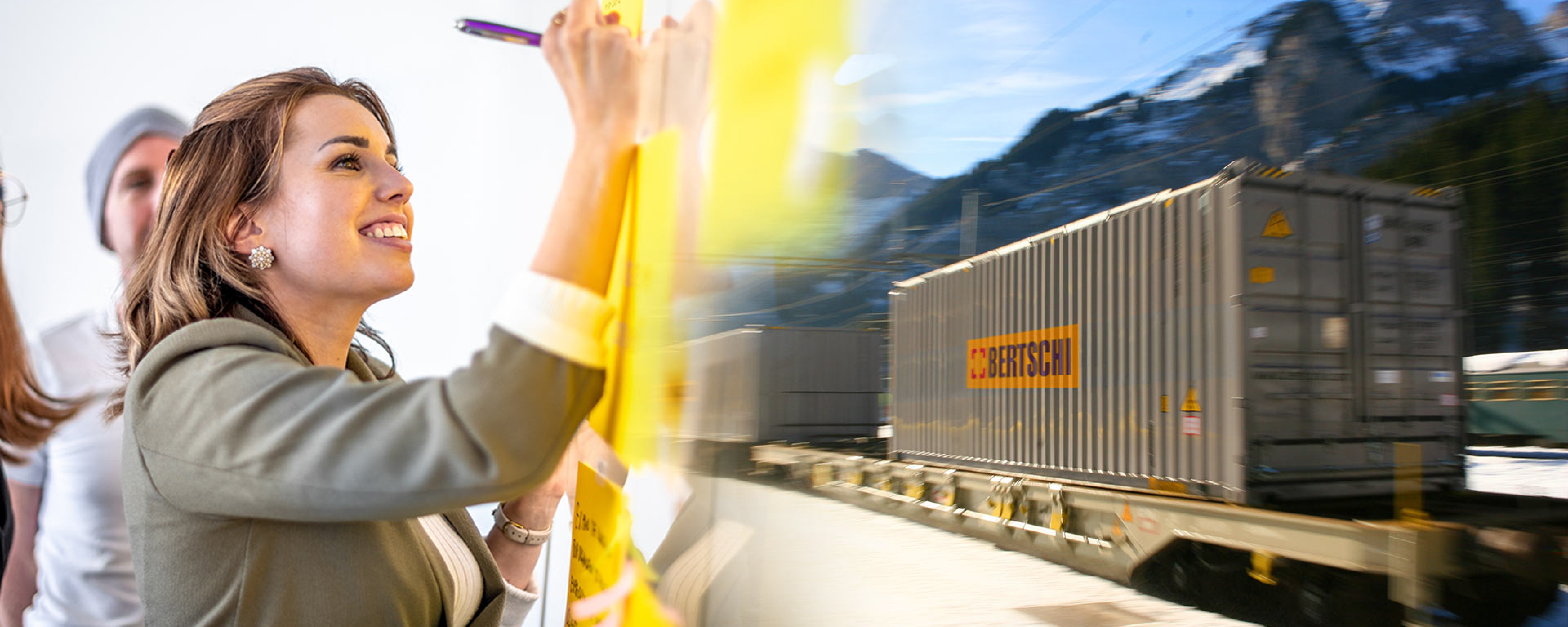Bertschi expands globally and leads the way in decarbonized logistics

- New global operations launched in Japan, Korea, and India
- Engaging in decarbonized logistics and renewable energy transport
- Enhanced customer service with automation and tailored digital solutions
- Turnover of CHF 1.01 billion (+5%) achieved in 2024, margin under pressure
- Over CHF 90 million invested, in global expansions, infrastructures for sustainable logistics to meet Europe’s import demand and digitalization
- Co-founded Women in Logistics consortium to promote sector diversity
The global economic landscape in 2024 presented both challenges and opportunities. The year began with stable margins supported by consistent demand. However, rising costs, ongoing geopolitical tensions, and shifts in global trade patterns affected profitability as the year progressed. Bertschi Group achieved in 2024 a turnover of CHF 1.01 billion, representing a turnover growth of five percent. Last year, a considerable CHF 90 million was invested in global expansions, in the construction of new multimodal logistics infrastructures in Antwerp and Rotterdam as the two major European ports, and in digitalization. Bertschi Group achieved a positive financial result – however at a significantly lower level compared to previous years.
In Europe, the chemical industry faced in 2024 weak demand from key sectors such as construction and automotive, alongside persistently high energy costs. This contributed to Europe's continued shift from a net export to a net import market and significantly altering supply chain dynamics. “Chemical production in major European markets has significantly dropped over the past two years, with a considerable number of permanent plant closures announced in 2024. With our global presence, Bertschi was able to offer customers agile and cost-efficient door-door-solutions from worldwide diversified sourcing points into Europe’s receiving markets,” said Hans-Jörg Bertschi, Chairman of the Board of Directors.
Infrastructure and Market Expansion in Europe and Asia
Bertschi made significant strides in addressing the worldwide evolving chemical logistics landscape. The newly built Antwerp Zomerweg Terminal, opened in August 2024, has become a powerful hub for chemical imports to Europe from overseas. Strategically located in Europe’s largest integrated chemical cluster, the 60,000m² terminal focuses on the storage of Dangerous Goods (DG) and non-DG products in Tank Containers and Trimodal Services by rail, barge and truck. Equipped with state-of-the-art storage, heating, and multimodal transport solutions, the terminal was designed with global Supply Chain resilience in focus, integrating energy-efficient processes and modal shift from road to rail and waterways.

Complementing this investment, the significantly expanded Bertschi Rotterdam Botlek facilities now offer an additional 30,000 tonnes of DG Isotank storage capacity, integrated rail and barge connectivity, and enhanced operational efficiency. The significant infrastructure investments in Isotank-Farms at the two leading European seaports support the shift of chemical imports into Europe from drums and parcel tankers to tank containers, substituting also classical warehouses and port storage tanks for the more flexible, sustainable and cost-efficient storage of specialty chemicals in tank containers.

In Asia, adding to Bertschi’s existing global Isotank operations in Shanghai, Tianjin, and Singapore, and the Supply Chain Solutions Hubs in Singapore and Zhangjiagang (China), the Group expanded its footprint by launching new operations in Japan, Korea, and India. A new Joint Venture in Tokyo with our Japanese partner Uyeno Group and a wholly owned subsidiary in Seoul were opened in the first half of 2024. They have already delivered promising results, with increasing global ISO tank transport volumes and deeper customer relationships. In addition, a strategic partnership with the Samsara Group has been successfully initiated in India.

Bertschi is ideally positioned to manage the increasing global trade flows of chemical products. Looking ahead to 2025, Bertschi aims to further expand its presence in support of the global growth strategy. With its global Isotank and supply chain solutions network, Bertschi can leverage its strengths to successfully position itself with innovative solutions for the rapidly changing flow of goods resulting from the new geopolitical situation.
Customer-Centric Digitalization and Promoting Diversity
Bertschi has significantly enhanced its customer service capabilities by automating its quotation, order tracking, and invoicing processes. This enables teams to focus on personalized customer engagement, improving reliability and strengthening customer relationships.
To enhance the industry’s gender balance, Bertschi co-initiated the Women in Logistics (WIL) consortium with 10 partners from the chemical and chemical logistics industry. Recognizing the measurable benefits of diverse teams on decision-making and operational outcomes, the consortium is actively working to increase diversity in its operations and leadership, “Women in Logistics is all about meaningful change through collaboration beyond competition,” says Hans-Jörg Bertschi. Through collective efforts, targeted actions and ongoing collaboration with other stakeholders, WIL aims to drive equality and promote and empower women at all levels of employment.

Leading the Way in Decarbonized Logistics
Bertschi strengthened its focus on the transport and storage of decarbonized chemical products. Supporting the chemical industry’s shift from fossil fuels to recyclates and renewable raw materials, the company is enabling its customers to align with global climate goals, including those set by the Paris Agreement.

Through its Bertschi Renewables initiative, the company provides innovative logistics solutions for sustainable chemicals like SAF (Sustainable Aviation Fuel), HVO (Hydrotreated Vegetable Oil), and pyrolysis oil. These products are critical for decarbonizing industries and reducing greenhouse gas emissions. Bertschi offers insetting options, such as deploying certified e-trucks and implementing a mass balance approach to further sustainability efforts.
With over 90% of European container transports executed via rail or barge, Bertschi continues to lead the shift from traditional road transport to intermodal solutions, reducing carbon emissions in European distribution by up to 85 percent. Additionally, the gradual rollout of HVO- and electric-powered trucks for first- and last-mile delivery of containers from rail terminals further reduces the emissions within the supply chain.

“These initiatives build on Bertschi’s history of intermodal transport, which combines rail, ship, and road transport to reduce reliance on emission-intensive road logistics,” says Jan Arnet, Group CEO, noting that in 2024 the company celebrated 60 years of intermodal transport since founder Hans Bertschi pioneered it in Europe in 1964.
Optimistic outlook despite geopolitical challenges
The economic situation is likely to remain challenging for Bertschi in 2025, influenced by geopolitical and economic developments. The current shifts will pose some risks but also offer opportunities. The Group’s global business is working on positioning itself to take advantage of the expected stronger geopolitical fragmentation. It is focusing its growth on “bridge countries” in between major blocks, as these might rather develop economic advantages from the new situation.
A continuation of China’s export strategy of chemical products to global markets is anticipated. Through its strengthened presence in Asia, Bertschi is able to offer resilient Intra-Asian Isotank logistics and serve customers with comprehensive solutions in these markets. The United States, with its favourable feedstock-costs, will remain a key focus of Bertschi’s strategic development. As the trade between the US and China will most probably undergo certain import tax related disturbances, Bertschi is prepared to provide sufficient and competitive door-door solutions through ‘bridge countries’. The company’s global organisational integration of both Sea- and Land- transportation will ensure an efficient route and inventory management avoiding the need of safety stocks in receiving markets.
In Europe, many of the announced chemical plant closures as a result of Europe’s non-competitive high energy costs will be executed during 2025. In consequence, Bertschi’s European organization will focus on the logistics of chemical import flows into Europe, which are expected to grow considerably, compensating for the European production losses. It is expected that the significantly expanded storage and multimodal transportation infrastructure in major ports in combination with the dense intermodal rail network across the European hinterland will compensate for the transport volume losses resulting from European plant closures.
Sustainability will be another key topic in 2025. Bertschi plans to expand its leading position in logistics for Renewable Chemicals and Energies. And the company is planning next steps towards its goal of carbon neutrality by 2050. Electric trucks may become available in the market from 2026, with approval to transport Dangerous Goods in tank containers by road in Europe. Bertschi plans to prepare the electric loading infrastructure at its first European company site to accommodate during 2026 for this new sustainability opportunity.






